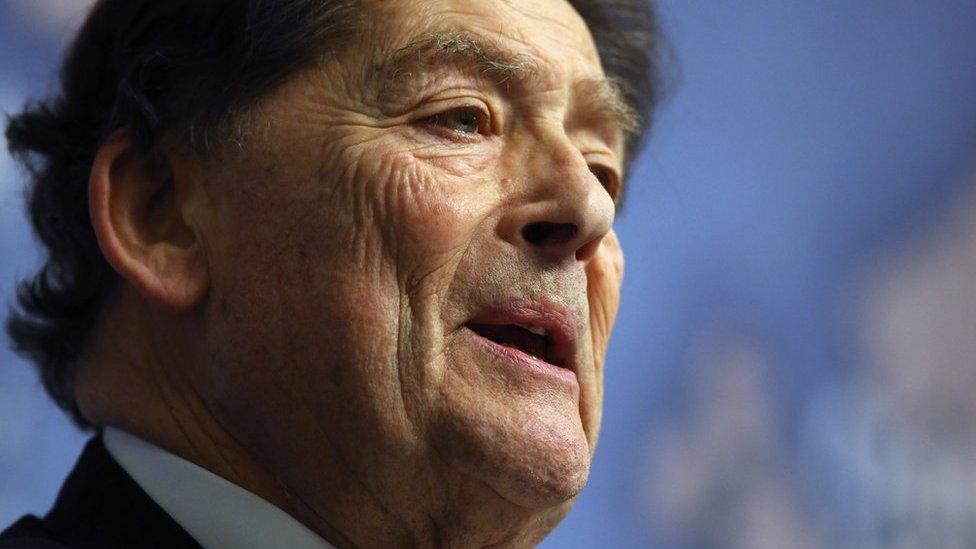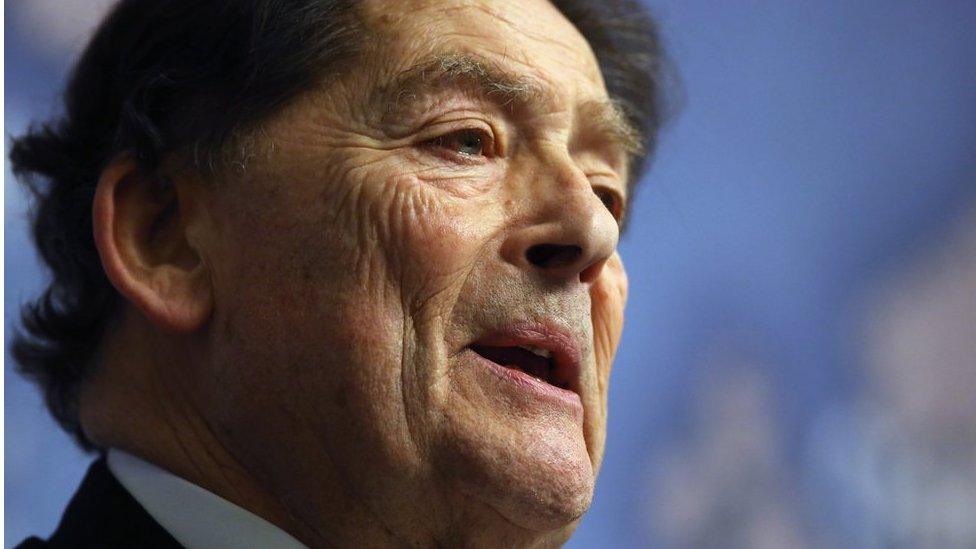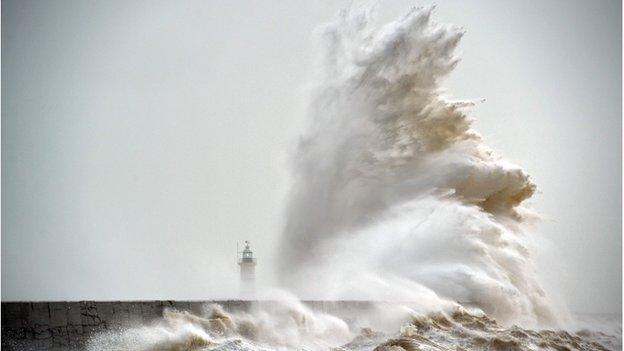Ofcom to investigate BBC climate change interview
- Published

Interviews with former Chancellor Lord Lawson sparked complaints in 2014 and 2017
Media watchdog Ofcom has launched its first broadcasting standards investigation into the BBC since taking over as its regulator in April.
Ofcom will look into whether Radio 4's Today programme broke broadcasting rules during an interview with climate change sceptic Lord Lawson in August.
The BBC has admitted the item broke its guidelines and said Lord Lawson should have been challenged "more robustly".
It followed a 2014 interview with Lord Lawson that also breached BBC rules.
After that appearance, the BBC's editorial complaints unit upheld complaints from three listeners that Today had given undue weight to his views and had conveyed a misleading impression of the scientific evidence.
The flagship news programme invited the Conservative peer back in August 2017.
On that occasion, he said "official figures" showed average world temperatures had "slightly declined" - but he wasn't challenged on air and that view was shown to be false by the Met Office.
The BBC admitted it should have challenged him and that the interview had breached its "guidelines on accuracy and impartiality".
Although the BBC upheld the complaints again, one listener referred the matter to Ofcom, saying the BBC hadn't taken sufficient action.
That prompted the regulator - which took over responsibility for overseeing the BBC's editorial standards in April - to investigate whether the interview broke its broadcasting code.
Ofcom said: "We are investigating whether this interview, which followed a similar interview in 2014, breached our rules on due accuracy and due impartiality."
A BBC spokeswoman said: "We have already acknowledged that we should have challenged some of Lord Lawson's statements more robustly.
"We recognise the weight of scientific consensus on climate change and the Today programme has covered the subject on many separate occasions with a range of voices from scientific backgrounds."
In 2011, the BBC Trust drew up guidelines saying BBC coverage should reflect the "general agreement among climate scientists" that the evidence is in favour of global warming caused by human activity.
That doesn't mean scientific research shouldn't be properly scrutinised or that sceptical views should be excluded from BBC programmes, according to the guidelines.

Follow us on Facebook, external, on Twitter @BBCNewsEnts, external, or on Instagram at bbcnewsents, external. If you have a story suggestion email entertainment.news@bbc.co.uk.
- Published25 October 2017

- Published11 August 2017

